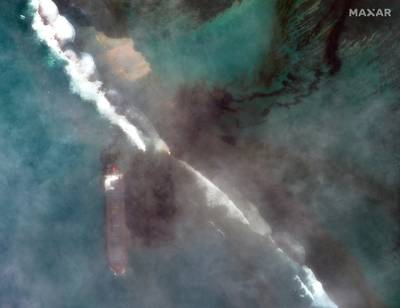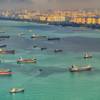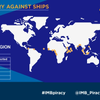Wakashio Oil Leak Stops as Mauritius Braces for 'Worst Case Scenario'
A Japanese ship that ran aground on a reef off Mauritius two weeks ago has now stopped leaking oil into the Indian Ocean but the island nation must still prepare for "a worst case scenario", Prime Minister Pravind Jugnauth said late on Monday.
Conservationists said they were starting to find dead fish as well as seabirds covered in oil, increasing fears of an ecological catastrophe despite a massive local cleanup operation that includes making floating booms from leaves and human hair.
Jugnauth said the leak from a damaged oil tank on board the stricken vessel, the MV Wakashio, had stopped but that it still had 2,000 tonnes of oil in two other, undamaged tanks.
"The salvage team has observed several cracks in the ship hull, which means that we are facing a very serious situation," Jugnauth said in a televised speech, parts of which were made available to Reuters by his office.
"We should prepare for a worst case scenario. It is clear that at some point the ship will fall apart."
Mauritius has declared a state of emergency and former colonial ruler France has sent aid in what environmental group Greenpeace said could be a major ecological crisis. Japan has also sent help.
Tourism is a major contributor to the Mauritius economy, generating 63 billion rupees ($1.6 billion) last year.
Dead fish
"We are starting to see dead fish. We are starting to see animals like crabs covered in oil, we are starting to see seabirds covered in oil, including some which could not be rescued," said Vikash Tatayah, conservation director at Mauritius Wildlife Foundation, a non-governmental organization.
The nearby Blue Bay Marine Park, known for its corals and myriad fish species, has so far escaped damage but a lagoon containing an island nature reserve, the Ile Aux Aigrettes, is already covered in oil, he said.
At least 1,000 tonnes of oil is estimated to have leaked so far, with 500 tonnes salvaged.
Mauritians are making booms out of sugar cane leaves, plastic bottles and hair that people are voluntarily cutting off and floating them on the sea to prevent the oil spill spreading, island resident Romina Tello told Reuters.
"Hair absorbs oil but not water," Tello, founder of Mauritius Conscious, an eco-tourism agency, said by phone.
"There's been a big campaign around the island to get hair," said Tello, 30, who spent the weekend helping clean black sludge from mangrove swamps.
Videos posted online showed volunteers sewing leaves and hair into nets to float on the surface and corral the oil until it can be sucked up by hoses.
Diving centers, fishermen and others have all joined in the cleanup effort, with guesthouses offering free accommodation to volunteers and hair salons offering discounts to those donating hair, Tello said.
The Mauritian government is also using sea booms to control the spill and vacuuming up oil from the water's surface.
The MV Wakashio is owned by the Nagashiki Shipping Company and operated by Mitsui OSK Line.
(Editing by Gareth Jones)














